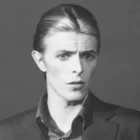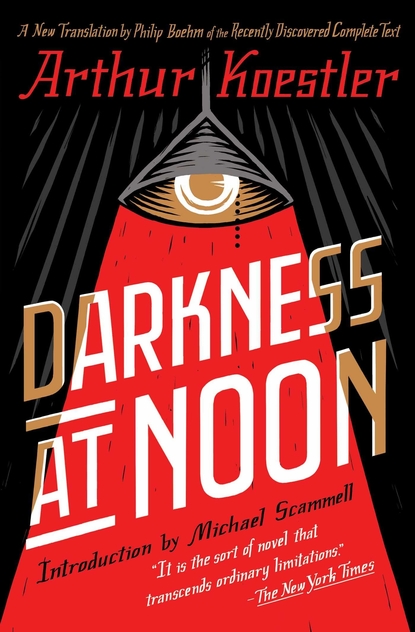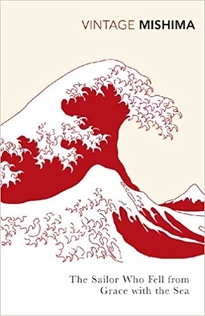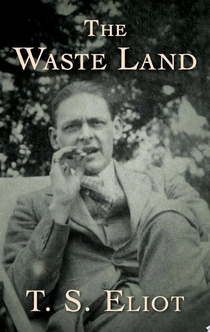
The Waste Land
Famous for juxtaposing Eastern cultures with Western literary references, The Waste Land has been celebrated for its eloquence, depth of meaning, and numerous subtleties. Rich with allusions to the religious texts of Hinduism and Buddhism, ancient literature, and Eliot’s own life, the poem continues to be admired and studied in higher education English literature courses. Quickly ascending to the status of literary classic, The Waste Land is widely considered to be Eliot’s finest work, representing maturity in his style and confidence in both expression and research. This ebook has been professionally proofread to ensure accuracy and readability on all devices.
See all
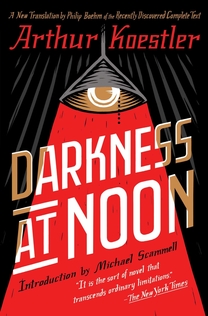
Darkness at Noon
The newly discovered lost text of Arthur Koestler’s modern masterpiece, Darkness at Noon—the haunting portrait of a revolutionary, imprisoned and tortured under totalitarian rule—is now restored and in a completely new translation.Editor Michael Scammell and translator Philip Boehm bring us a brilliant novel, a remarkable discovery, and a new translation of an international classic. In print continually since 1940, Darkness at Noon has been translated into over 30 languages and is both a stirring novel and a classic anti-fascist text. What makes its popularity and tenacity even more remarkable is that all existing versions of Darkness at Noon are based on a hastily made English translation of the original German by a novice translator at the outbreak of World War II. In 2015, Matthias Weßel stumbled across an entry in the archives of the Zurich Central Library that is a scholar's dream: “Koestler, Arthur. Rubaschow: Roman. Typoskript, März 1940, 326 pages.” What he had found was Arthur Koestler’s original, complete German manuscript for what would become Darkness at Noon, thought to have been irrevocably lost in the turmoil of the war. With this stunning literary discovery, and a new English translation direct from the primary German manuscript, we can now for the first time read Darkness at Noon as Koestler wrote it. Set in the 1930s at the height of the purge and show trials of a Stalinist Moscow, Darkness at Noon is a haunting portrait of an aging revolutionary, Nicholas Rubashov, who is imprisoned, tortured, and forced through a series of hearings by the Party to which he has dedicated his life. As the pressure to confess preposterous crimes increases, he re-lives a career that embodies the terrible ironies and betrayals of a merciless totalitarian movement masking itself as an instrument of deliverance. Koestler’s portrayal of Stalin-era totalitarianism and fascism is as chilling and resonant today as it was in the 1940s and during the Cold War. Rubashov’s plight explores the meaning and value of moral choices, the attractions and dangers of idealism, and the corrosiveness of political corruption. Like The Trial, 1984, and Animal Farm, this is a book you should read as a citizen of the world, wherever you are and wherever you come from.
See all

The Great Gatsby
A true classic of twentieth-century literature, this edition has been updated by Fitzgerald scholar James L.W. West III to include the author’s final revisions and features a note on the composition and text, a personal foreword by Fitzgerald’s granddaughter, Eleanor Lanahan—and a new introduction by two-time National Book Award winner Jesmyn Ward. Nominated as one of America’s best-loved novels by PBS’s The Great American Read.The Great Gatsby, F. Scott Fitzgerald’s third book, stands as the supreme achievement of his career. First published in 1925, this quintessential novel of the Jazz Age has been acclaimed by generations of readers. The story of the mysteriously wealthy Jay Gatsby and his love for the beautiful Daisy Buchanan, of lavish parties on Long Island at a time when The New York Times noted “gin was the national drink and sex the national obsession,” it is an exquisitely crafted tale of America in the 1920s.
See all

Black Boy
Richard Wright's powerful and eloquent memoir of his journey from innocence to experience in the Jim Crow South—at once an unashamed confession and a profound indictment, Black Boy is a poignant and disturbing record of social injustice and human suffering. When Black Boy exploded onto the literary scene in 1945, it caused a sensation. Orville Prescott of the New York Times wrote that “if enough such books are written, if enough millions of people read them maybe, someday, in the fullness of time, there will be a greater understanding and a more true democracy.” Opposing forces felt compelled to comment: addressing Congress, Senator Theodore Bilbo of Mississippi argued that the purpose of this book “was to plant seeds of hate and devilment in the minds of every American.” From 1975 to 1978, Black Boy was banned in schools throughout the United States for “obscenity” and “instigating hatred between the races.”The once controversial, now classic American autobiography measures the brutality and rawness of the Jim Crow South against the sheer desperate will it took to survive. Richard Wright grew up in the woods of Mississippi, with poverty, hunger, fear, and hatred. He lied, stole, and raged at those about him; at six he was a “drunkard,” hanging about in taverns. Surly, brutal, cold, suspicious, and self-pitying, he was surrounded on one side by whites who were either indifferent to him, pitying, or cruel, and on the other by blacks who resented anyone trying to rise above the common lot. The second half of the book focuses on Wright’s move north to Chicago, and his experiences with the Communist Party (a section that was pulled from the book’s original publication).Black Boy is Richard Wright's compelling account of his journey. Deeply affecting and beautifully written, it is as timely today as when it was first published nearly seventy-five years ago.
See all

Puckoon
Puckoon is Spike Milligan's classic slapstick novel, reissued for the first time since it was published in 1963.'Pops with the erratic brilliance of a careless match in a box of fireworks' Daily MailIn 1924 the Boundary Commission is tasked with creating the new official division between Northern Ireland and the Irish Republic. Through incompetence, dereliction of duty and sheer perversity, the border ends up running through the middle of the small town of Puckoon.Houses are divided from outhouses, husbands separated from wives, bars are cut off from their patrons, churches sundered from graveyards. And in the middle of it all is poor Dan Milligan, our feckless protagonist, who is taunted and manipulated by everyone (including the sadistic author) to try and make some sense of this mess . . .'Bursts at the seams with superb comic characters involved in unbelievably likely troubles on the Irish border' Observer'Our first comic philosopher' Eddie IzzardSpike Milligan was one of the greatest and most influential comedians of the twentieth century. Born in India in 1918, he served in the Royal Artillery during WWII in North Africa and Italy. At the end of the war, he forged a career as a jazz musician, sketch-show writer and performer, before joining forces with Peter Sellers and Harry Secombe to form the legendary Goon Show. Until his death in 2002, he had success as on stage and screen and as the author of over eighty books of fiction, memoir, poetry, plays, cartoons and children's stories.
See all

Herzog
Saul Bellow's Herzog is part confessional, part exorcism, and a wholly unique achievement in postmodern fiction. Is Moses Herzog losing his mind? His formidable wife Madeleine has left him for his best friend, and Herzog is left alone with his whirling thoughts - yet he still sees himself as a survivor, raging against private disasters and the myriad catastrophes of the modern age. In a crumbling house which he shares with rats, his head buzzing with ideas, he writes frantic, unsent letters to friends and enemies, colleagues and famous people, the living and the dead, revealing the spectacular workings of his labyrinthine mind and the innermost secrets of his troubled heart.This Penguin Modern Classics edition includes an introduction by Malcolm Bradbury'Spectacular ... surely Bellow's greatest novel'Malcolm Bradbury'A masterpiece ... Herzog's voice, for all its wildness and strangeness and foolishness, is the voice of a civilization, our civilization'The New York Times Book Review
See all
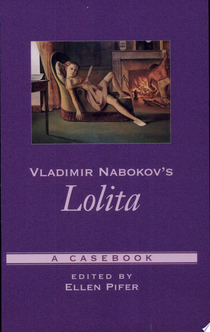
Vladimir Nabokov's Lolita
Midway through the last century, Lolita burst on the literary scene--a Russian exile's extraordinary gift to American letters and the New World. The scandal provoked by the novel's subject--the sexual passion of a middle-aged European for a twelve-year-old American girl--was quickly upstaged by the critical attention it received from readers, scholars, and critics around the world. This casebook gathers together an interview with Nabokov as well as nine critical essays about Lolita. The essays follow a progression focusing first on textual and thematic features and then proceeding to broader topics and cultural implications, including the novel's relations to other works of literature and art and the movies adapted from it.
See all

The Prime of Miss Jean Brodie
'Muriel Spark's most celebrated novel . . . This ruthlessly and destructively romantic school ma'am is one of the giants of post-war fiction' Independent 'A brilliantly psychological fugue' Observer The Prime of Miss Jean Brodie is Muriel Spark's most significant and celebrated novel, and remains as dazzling as when it was first published in 1961. Miss Jean Brodie is a teacher unlike any other, proud and cultured, enigmatic and freethinking; a romantic, with progressive, sometimes shocking ideas and aspirations for the girls in her charge. At the Marcia Blaine Academy she takes a select group of girls under her wing. Spellbound by Miss Brodie's unconventional teaching, these devoted pupils form the Brodie set. But as the girls enter their teenage years and they become increasingly drawn in by Miss Brodie's personal life, her ambitions for them take a startling and dark turn with devastating consequences.
See all
